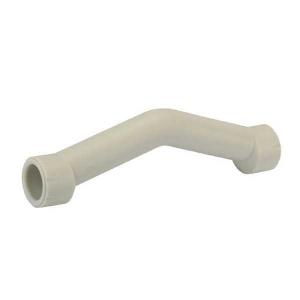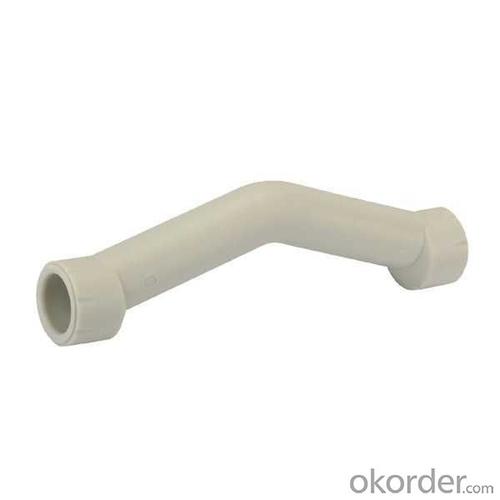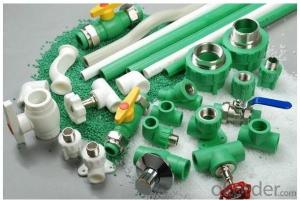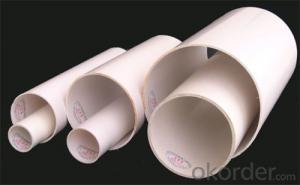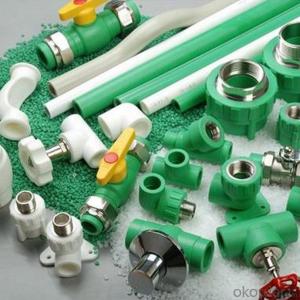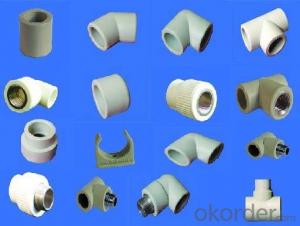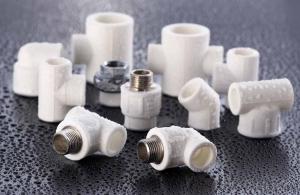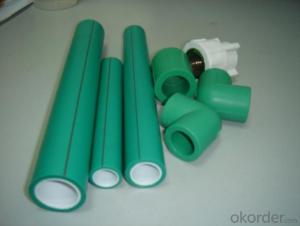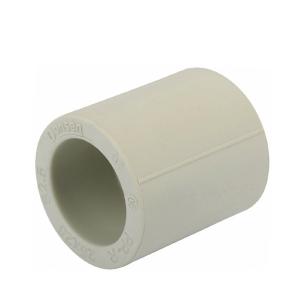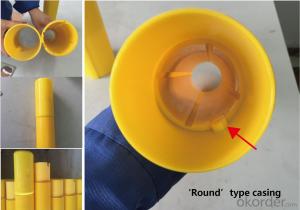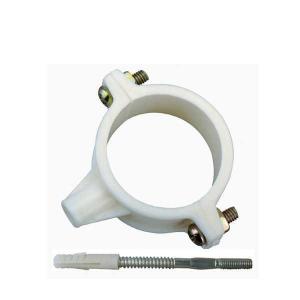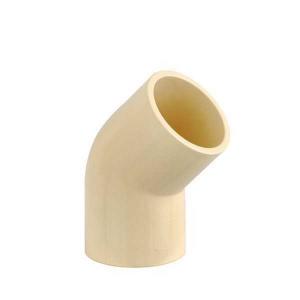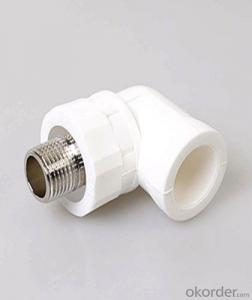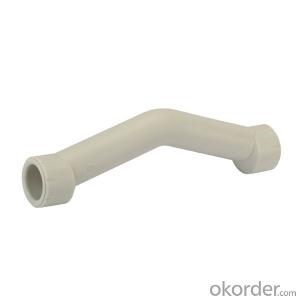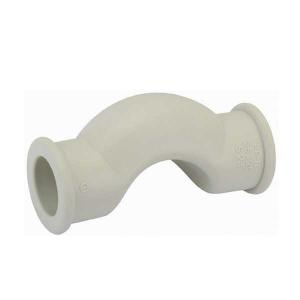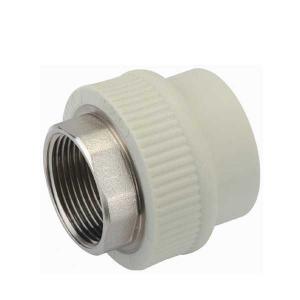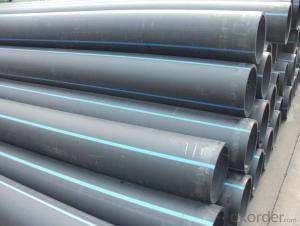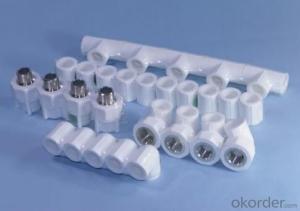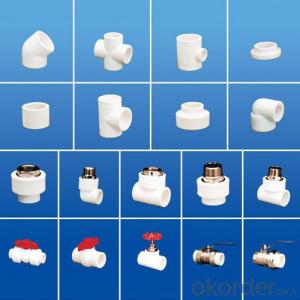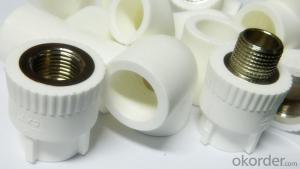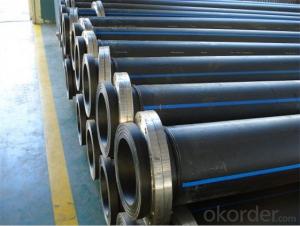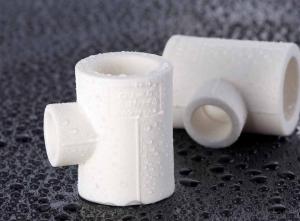High Quality Long Siphon Metal To Plastic Water Pipe Fittings
- Loading Port:
- Ningbo
- Payment Terms:
- TT or LC
- Min Order Qty:
- 1000 watt
- Supply Capability:
- 100000 watt/month
OKorder Service Pledge
Quality Product, Order Online Tracking, Timely Delivery
OKorder Financial Service
Credit Rating, Credit Services, Credit Purchasing
You Might Also Like
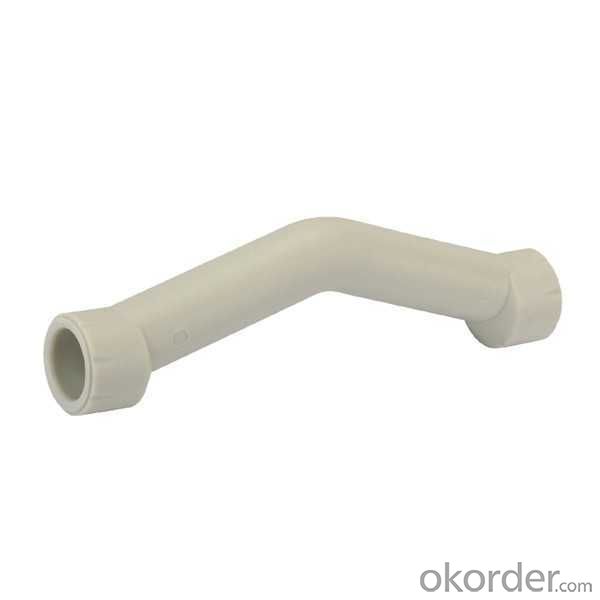 ppr fittings HYOSUNG PPR raw materials standard:DIN8077-8078 GB/T18742.3-2002 PN25 White grey green color
ppr fittings HYOSUNG PPR raw materials standard:DIN8077-8078 GB/T18742.3-2002 PN25 White grey green color
1.Material:Random Polypropylene(Hyosung R200P);
2.ISO9001&ISO14001;
3.Standard:GB/T 18742.3-2002, DIN8077/8078;
4.OEM also ok
- Q: Are plastic pipe fittings resistant to ground settlement?
- Plastic pipe fittings are generally not resistant to ground settlement. Ground settlement can cause shifting and movement in the soil, which can exert pressure on the pipes and fittings. This pressure can lead to deformation, cracking, or even complete failure of the plastic fittings. Therefore, it is important to consider the potential for ground settlement and take appropriate measures, such as using flexible materials or implementing proper reinforcement, to mitigate the risks and ensure the longevity of the pipe system.
- Q: Can plastic pipe fittings withstand high temperatures?
- Yes, plastic pipe fittings can generally withstand high temperatures, but the specific temperature range will depend on the type of plastic used and their design. Some plastic materials, such as PVC (polyvinyl chloride), CPVC (chlorinated polyvinyl chloride), and PEX (cross-linked polyethylene), are commonly used for piping systems and can handle elevated temperatures. However, it is important to check the manufacturer's specifications and guidelines to ensure that the specific plastic pipe fittings are suitable for the intended high-temperature applications.
- Q: Can plastic pipe fittings be used for underground installations?
- Yes, plastic pipe fittings can be used for underground installations. Plastic pipe fittings, such as those made of PVC or polyethylene, have proven to be durable, corrosion-resistant, and suitable for underground applications. They are commonly used in various underground systems, including water supply, drainage, and irrigation.
- Q: Are plastic pipe fittings resistant to high temperatures?
- Yes, plastic pipe fittings are generally resistant to high temperatures. However, the specific temperature resistance may vary depending on the type of plastic used and the manufacturer's specifications.
- Q: Are plastic pipe fittings resistant to sewer gas?
- Yes, plastic pipe fittings are generally resistant to sewer gas. They are commonly used in plumbing systems to prevent the escape of sewer gas, ensuring airtight connections and minimizing the risk of leaks.
- Q: Can plastic pipe fittings be used for wastewater treatment facilities?
- Yes, plastic pipe fittings can be used for wastewater treatment facilities. Plastic pipe fittings are commonly used in wastewater treatment facilities due to their corrosion resistance, durability, and ease of installation. Additionally, plastic fittings are cost-effective and offer excellent chemical resistance, making them suitable for handling various wastewater treatment processes.
- Q: Are plastic pipe fittings suitable for hydronic heating systems?
- Yes, plastic pipe fittings are suitable for hydronic heating systems. Plastic pipe fittings, such as those made from PEX (cross-linked polyethylene) or CPVC (chlorinated polyvinyl chloride), are commonly used in hydronic heating systems due to their durability, flexibility, and resistance to corrosion. These fittings are also easy to install and can handle the high temperatures and pressures typically found in hydronic heating systems.
- Q: How do plastic pipe fittings compare to ABS fittings?
- Plastic pipe fittings and ABS fittings are both commonly used in plumbing systems. While both types of fittings are made of plastic, there are some differences in their characteristics and applications. ABS (Acrylonitrile Butadiene Styrene) fittings are known for their durability and strength, making them suitable for use in applications that require higher pressure and temperature resistance. They are commonly used in drain, waste, and vent (DWV) systems. On the other hand, plastic pipe fittings, often made of PVC (Polyvinyl Chloride), are more versatile and can be used in a wider range of plumbing applications. They are generally more affordable and easier to install, making them popular for residential plumbing projects. Ultimately, the choice between plastic pipe fittings and ABS fittings depends on the specific needs and requirements of the plumbing system.
- Q: How do plastic pipe fittings handle extreme weather conditions?
- Plastic pipe fittings generally fare well in extreme weather conditions due to their durability and resistance to temperature fluctuations. They have the ability to withstand freezing temperatures, high heat, and even harsh UV rays without cracking or deteriorating. Additionally, plastic pipe fittings are often designed with weather-resistant properties, such as UV stabilizers or special coatings, which further enhance their ability to handle extreme weather conditions.
- Q: Can plastic pipe fittings be used in food processing systems?
- Yes, plastic pipe fittings can be used in food processing systems. Plastic fittings are commonly used in various industries, including the food industry, due to their advantages such as corrosion resistance, durability, and ease of installation. However, it is important to ensure that the plastic material used is food-grade and complies with relevant safety regulations to prevent any potential contamination of the food.
Send your message to us
High Quality Long Siphon Metal To Plastic Water Pipe Fittings
- Loading Port:
- Ningbo
- Payment Terms:
- TT or LC
- Min Order Qty:
- 1000 watt
- Supply Capability:
- 100000 watt/month
OKorder Service Pledge
Quality Product, Order Online Tracking, Timely Delivery
OKorder Financial Service
Credit Rating, Credit Services, Credit Purchasing
Similar products
Hot products
Hot Searches
Related keywords
